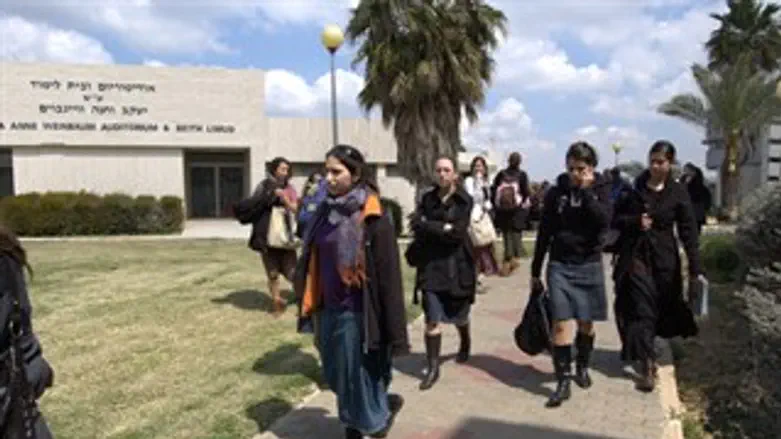
In 2006, in the aftermath of the Second Lebanon War, many Israelis called on the government to establish an official commission of inquiry. Others omitted this step and demanded the immediate resignation of the country’s top three ministers.
These calls stemmed from our instinctive reaction to any failure or, God forbid, tragedy. We expect the guilty Culprits (with a capital C) to be identified (this instant!), dismissed, and punished – so that the rest of us can get on with our lives.
Yet, such demands ignore the root cause. As a general rule, fundamental problems do not begin or end with a specific person. In fact, many crises represent only the tip of the iceberg and are the result of a broader, culture-wide failure.
Often, our need to find the Culprit is actually a subconscious attempt at avoiding self-scrutiny or any discussion of how we reached the current impasse. In contrast, a healthy, Torah-based approach requires introspection. Each and every one of us must take an honest look in the mirror and be willing to make real changes – both personally and in leadership terms. In other words, although certain individuals may not be doing their jobs properly, the most important question is: Am I doing my job?
 our need to find the Culprit is actually a subconscious attempt at avoiding self-scrutiny or any discussion of how we reached the current impasse.
our need to find the Culprit is actually a subconscious attempt at avoiding self-scrutiny or any discussion of how we reached the current impasse. Consider the following incident, which took place many years ago in Yerushalayim. A man applied for an increase in his National Insurance allowance, but his request was denied. Furious, he headed to the roof, opened fire with an M16 machine gun, and hit a number of innocent passersby. As expected, there was an immediate public outcry for a commission of inquiry - to investigate the National Insurance clerks. However, it soon became apparent that the man was emotionally disturbed. “Insanity” was listed as the official explanation for his actions, and the matter was dropped.
Consider the following incident, which took place many years ago in Yerushalayim. A man applied for an increase in his National Insurance allowance, but his request was denied. Furious, he headed to the roof, opened fire with an M16 machine gun, and hit a number of innocent passersby. As expected, there was an immediate public outcry for a commission of inquiry - to investigate the National Insurance clerks. However, it soon became apparent that the man was emotionally disturbed. “Insanity” was listed as the official explanation for his actions, and the matter was dropped.
In response, Shmuel Schnitzer, the then-editor of Maariv, penned an essay entitled, “The Village Fool,” which claimed that Am Yisrael has always had its share of lunatics. For example, he recalled, in the European village where he grew up, a certain emotionally-unstable man would use a bucket instead of a washing cup for netilat yadayim and would shout instead of reciting the brachah (blessing) quietly. These village fools never hurt anybody, but rather each served Hashem in his own unique way. According to Schnitzer, a fool goes several centimeters beyond accepted societal norms. In a society where everyone recites brachot, the fool recites the brachot while screaming. In a violent society, the fool opens fire.
Thus, to a certain extent, we are all somewhat to blame. You and I are both part of a society which allows this type of crazy incident to occur. Moreover, a society’s fringes tend to be indicative of the whole. Therefore, if we feel that our society lacks values and has become increasingly fragmented, we must each ask ourselves what we can do to fix things.
The famous Midrash about Kamtza and Bar-Kamtza serves as an excellent illustration of this point. We are taught that their mutual enmity led to the destruction of the Beit HaMikdash. But why did the entire nation have to suffer because of the actions of two people?! After all, no one considers these men to be role models or wishes to emulate them! Yet, clearly, the Midrash does not consider the affair to be an isolated incident but rather presents it as an archetype. Kamtza and Bar-Kamtza’s behaviors and attitudes were characteristic and representative of the entire population and thus led to the destruction of the Beit HaMikdash. This is the meaning of the rabbinic dictum: “Kol Yisrael areivim zeh lazeh” (literally, “all of Israel are guarantors for each other”).
As we approach the Yamim HaNoraim (the Days of Awe), we must keep this lesson in mind. When the media demands a commission of inquiry against one party or another, we must remember that our primary role is to establish a personal commission of inquiry. We must look inwards and ask ourselves: How have we grown over the past year? What mistakes did we make, and what can we do to improve ourselves during the coming year?
We must find the strength to make changes - not only on a national level but also in our personal lives. We must pick a specific behavior and focus on it. For instance, we can resolve to pay more attention to our friends, to work on our midot (character traits), and so on. In this way, we can look forward to a new year of growth and happiness.
May the old year and its curses end; may the new year and its blessings begin.